| | 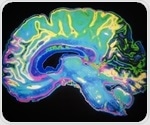 A landmark study published in the Journal of Neuroscience on February 26 reveals that activation of a pregnant mother's immune system can affect her baby's brain development. A landmark study published in the Journal of Neuroscience on February 26 reveals that activation of a pregnant mother's immune system can affect her baby's brain development. | |
|
| | 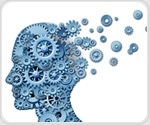 You're about to turn 60, and you're fretting. Your mother has had Alzheimer's disease since the age of 65. At what age will the disease strike you? A Canadian study published in JAMA Neurology shows that the closer a person gets to the age at which their parent exhibited the first signs of Alzheimer's, the more likely they are to have amyloid plaques, the cause of the cognitive decline associated with the disease, in their brain. You're about to turn 60, and you're fretting. Your mother has had Alzheimer's disease since the age of 65. At what age will the disease strike you? A Canadian study published in JAMA Neurology shows that the closer a person gets to the age at which their parent exhibited the first signs of Alzheimer's, the more likely they are to have amyloid plaques, the cause of the cognitive decline associated with the disease, in their brain. | |
|
| | 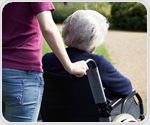 Sudha Seshadri, M.D., founding director of the Glenn Biggs Institute for Alzheimer's & Neurodegenerative Diseases at UT Health San Antonio, is co-leader and senior author on research announced March 6 that identifies novel biomarkers of risk for future dementia. Sudha Seshadri, M.D., founding director of the Glenn Biggs Institute for Alzheimer's & Neurodegenerative Diseases at UT Health San Antonio, is co-leader and senior author on research announced March 6 that identifies novel biomarkers of risk for future dementia. | |
|
| | 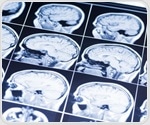 Sanford Burnham Prebys Medical Research Institute researchers have published two new studies in Neuron that describe how TREM2, a receptor found on immune cells in the brain, interacts with toxic amyloid beta proteins to restore neurological function. Sanford Burnham Prebys Medical Research Institute researchers have published two new studies in Neuron that describe how TREM2, a receptor found on immune cells in the brain, interacts with toxic amyloid beta proteins to restore neurological function. | |
|
| | 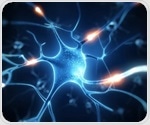 Two partners have to find their way to each other in order to transport substances to the remote ends of special nerve fibers to maintain their function. If this partnering process is disturbed, the cells may die in the worst case, resulting in neurodegenerative disorders such as amyotrophic lateral sclerosis (ALS) or spinal muscular atrophy. Two partners have to find their way to each other in order to transport substances to the remote ends of special nerve fibers to maintain their function. If this partnering process is disturbed, the cells may die in the worst case, resulting in neurodegenerative disorders such as amyotrophic lateral sclerosis (ALS) or spinal muscular atrophy. | |
|
| | 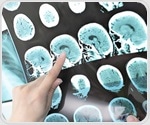 Scientists uncovered a high-resolution map of the wiring inside the mouse brain's thirst center. With these blueprints, they could trick mice into becoming light or heavy water drinkers. Scientists uncovered a high-resolution map of the wiring inside the mouse brain's thirst center. With these blueprints, they could trick mice into becoming light or heavy water drinkers. | |
|
| |  As strange as it may seem, migraine should be treated similar to asthma. Both diseases present symptoms in need of immediate rescue, and both conditions aim to achieve the ultimate goal of disease prevention. As strange as it may seem, migraine should be treated similar to asthma. Both diseases present symptoms in need of immediate rescue, and both conditions aim to achieve the ultimate goal of disease prevention. | |
|
| |  Federal researchers have discovered that severe stress or trauma early in life could actually change how the brain responds to stress hormones, essentially "re-wiring" the brain for later neuropathological disorders, according to a study, "A role for corticotrophin releasing factor signaling in the lateral habenula and its modulation by early life stress," published in Science Signaling, March 6. Federal researchers have discovered that severe stress or trauma early in life could actually change how the brain responds to stress hormones, essentially "re-wiring" the brain for later neuropathological disorders, according to a study, "A role for corticotrophin releasing factor signaling in the lateral habenula and its modulation by early life stress," published in Science Signaling, March 6. | |
|
| |  Sleep keeps the brain working properly. It helps us control our weight, as well as our emotions. It is also plays a role in helping to heal and repair the heart and blood vessels. Sleep keeps the brain working properly. It helps us control our weight, as well as our emotions. It is also plays a role in helping to heal and repair the heart and blood vessels. | |
|
| | 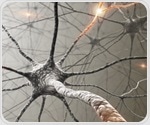 New research from The University of Texas at Dallas supports the growing consensus that pain begins differently for men and women at the cellular level. New research from The University of Texas at Dallas supports the growing consensus that pain begins differently for men and women at the cellular level. | |
|
| | 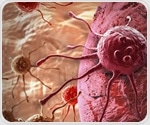 The University of Plymouth will be continuing its research into the advancement of neuro-tumor treatments thanks to more than £100,000 from Great Ormond Street Hospital Children's Charity and Sparks, the medical research charity. The University of Plymouth will be continuing its research into the advancement of neuro-tumor treatments thanks to more than £100,000 from Great Ormond Street Hospital Children's Charity and Sparks, the medical research charity. | |
|
| | 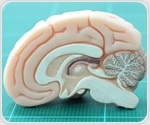 Reliance on behavioral indicators, such as crying, to assess pain in infants underestimates how much pain babies actually feel when they undergo stressful medical procedures. Reliance on behavioral indicators, such as crying, to assess pain in infants underestimates how much pain babies actually feel when they undergo stressful medical procedures. | |